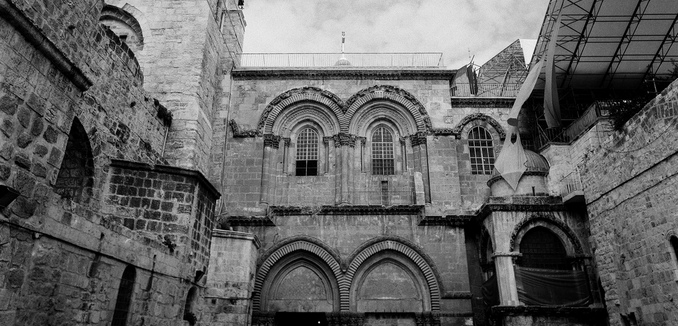Justus Reid Weiner last week published a report for the Jerusalem Center for Public Affairs documenting the fate of Middle Eastern Christians. Pope Francis’s recent visit to the Middle East, according to some observers, boosted the Palestinian case for a state. However, the fate of Palestinian Christians may play a role in determining the ultimate nature of a future Palestinian state.
Writing generally about Christians in the Middle East, Weiner observes:
The Christians of the Middle East are suffering from debilitating persecution. The Muslim states described above have neglected and abused the most fundamental rights and freedoms of their most vulnerable citizens. In doing so, they have not only violated the very legal obligations they have assumed but also have violated the very values cherished by democracies the world over. The recalcitrance of these states to enforce international human rights standards has made them perpetrators and accomplices to a multitude of human rights abuses. The behavior of these states is an affront to the international community. The definition of the crime of genocide includes deliberately inflicting on a religious group “conditions of life calculated to bring about its physical destruction in whole or in part.”
Christians are being systematically persecuted across the Middle East, the result being the termination of communal Christian life in the Middle East. As one Palestinian Christian stated, “We aren’t safe anymore….[T]his is a conspiracy against our existence in the Holy Land.” While the situation of Christians today does not amount to genocide, it is nonetheless alarming and disturbing. Left unchecked, this persecution is liable to lead to another mass exodus of a minority from the Middle East. It is evident that after Jews were driven from the Muslim states of the Middle East in the 20th century, that Christians are the next minority on the chopping block in the 21st century.
Specifically Weiner mentions the intimidation of the female Christian mayor of Bethlehem, the disenfranchising of a Baptist church in Bethlehem, and the arrests of Christians for eating publicly during Ramadan, among other depredations. All of these occurred in areas under the control the Palestinian Authority. In Gaza, under Hamas, Christians have faced kidnapping, murder, and forced conversions.
Weiner argued that religious freedom must be made a requirement of a future Palestinian state.
The case of Palestinian Christians presents a unique opportunity to deal with such human rights abuses before they become fully entrenched with the backing of a state. The PA and Hamas (in Gaza) are obligated to protect the fundamental freedoms of their Christian citizens. The PA professes to the world its yearning and right to statehood, but as described, it has not lived up to the liberal values expressed in the foundational documents of the would-be Palestinian state.However, while the seeds have been planted, there is still time to take action before they fully take root. Therefore, the question we must ask ourselves is, will Palestinian efforts for statehood lead to another state where minorities are brutally persecuted until they slowly cease to exist, or to a liberal state such as Israel where such minorities are accorded the rights and freedoms to which they are entitled?
[Photo: Florian Plischr / Flickr ]




